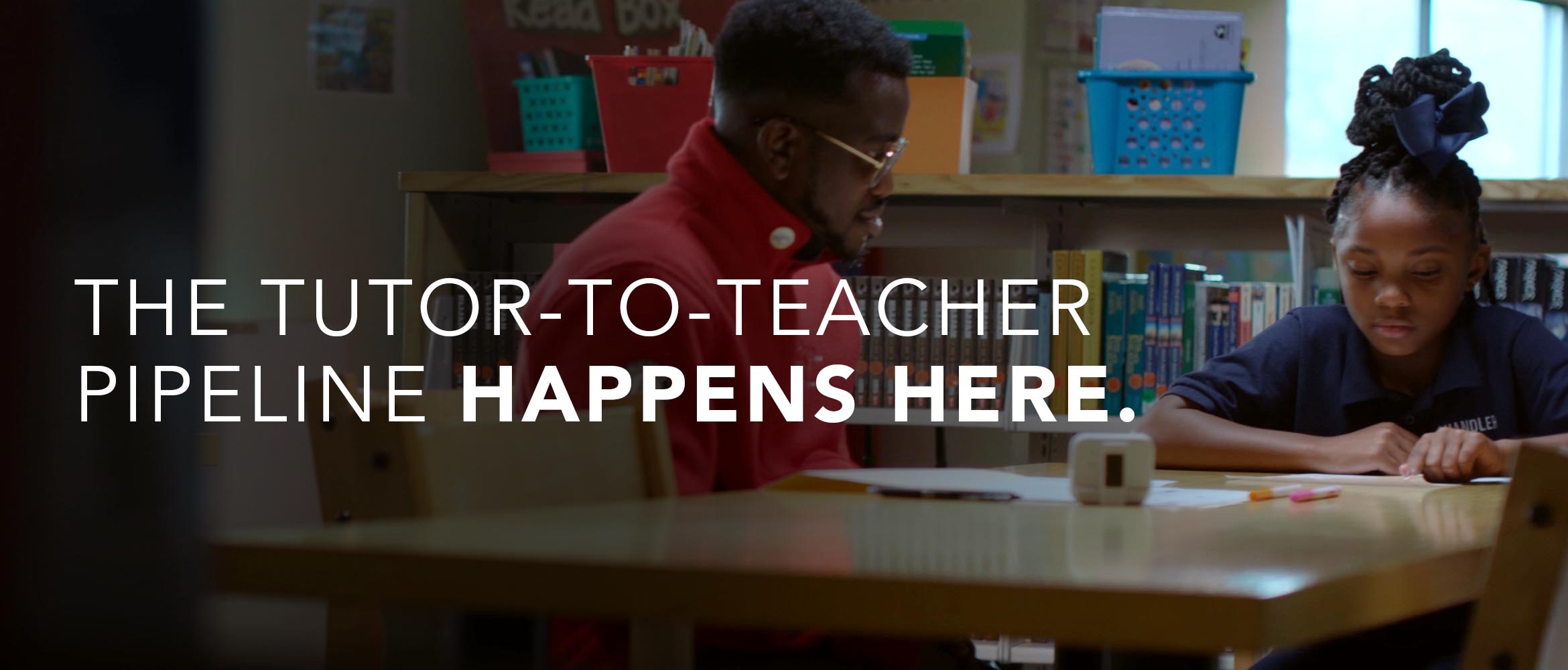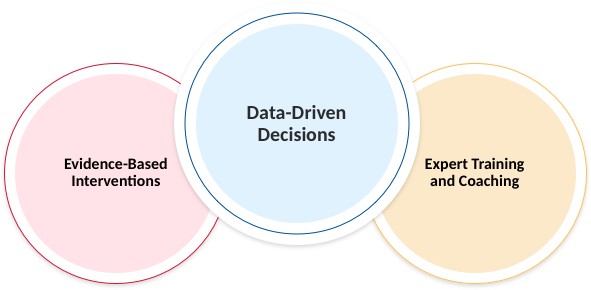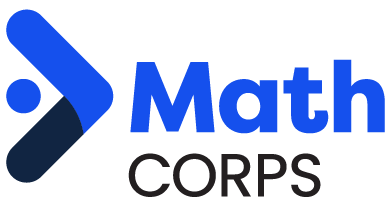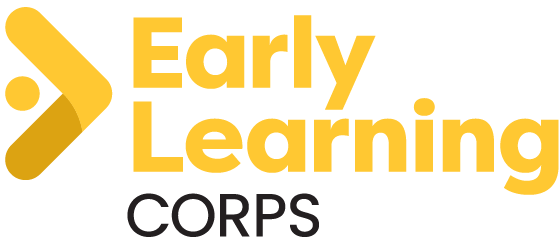
the michigan education corps ADVANTAGE
Our program has an outstanding track record for students, but we’re also solving another problem at the same time: the teacher shortage.
The State of Michigan is Facing a Significant Teacher Shortage:
- Enrollment in teacher preparation programs has dropped by 66% between 2008 and 2016.
- 20% of teachers stop teaching in the first 5 years.[1]
- Of teachers working in Michigan, 13% are defined as inexperienced.[2]
- Michigan’s annual teacher attrition rate is 10%
Today’s Tutors. Tomorrow’s Teachers.
We’re in an educator crisis for many reasons, one of them being that individuals are not entering the profession with the experience needed to be confident and competent.[3]
Clinically based preparation and high-quality mentoring leads to increased teacher retention.
Quality preparation includes practice teaching, receiving feedback on teaching and completing coursework on specific aspects of teaching, authentic clinical-based preparation, and high-quality mentoring.[4] All of this represents the type of experience MEC interventionists receive.
Impact through Alignment with Clinical Apprenticeship Requirements.

Michigan Education Corps is collaborating with MDE and higher education partners to identify where our program experience aligns with the Michigan Teacher Standards. This work has thus far indicated that the MEC service experience aligns well with the Clinical Apprenticeship requirements of the new teacher education standards.
Let’s Partner!
MEC invites post-secondary training institutions in creating a partnership model (i.e., “tutor-to-teacher” pipeline) where the benefits are shared by all. MEC interventionists receive the career-building benefit of hands-on, research-based, authentic learning with coaching in a school setting[5] while getting paid and earning funds to pay off debt or pursue future education. Local schools get the benefit of a highly trained individual to help reach even more kids to close math and literacy achievement gaps, and a potential future employee for their school.
Examples of Our Current Partnerships:
Service for Practicum Credit (postsecondary):
Students enrolled in the Special Education degree program at Cornerstone University or the Education degree program at Aquinas College have the option to serve with Michigan Education Corps to complete their practicum requirement. In addition to serving as an MEC Interventionist, Cornerstone students work with a licensed special education teacher and develop a lesson plan for a special education student as a part of the MEC service and Learning Disability Practicum.
A Two-Way Partnership:
Davenport University has been leveraging the benefits of the MEC experience and the College of Urban Education for the past 2 years. One path to teacher certification is that MEC promotes and supports current interventionists interested in becoming educators, to consider Davenport’s Certificate in Urban Education alternative route to teacher certification post-baccalaureate program. MEC service time can help with tuition reduction for this program through a combination of the Segal AmeriCorps Education Award and Davenport partnership tuition grants. A second path toward teacher certification is through service learning practicum courses in the College of Urban Education for undergraduates where students who serve as MEC interventionists can earn up to three elective credits towards completing their Bachelor’s degree at Davenport.
The Child Development Associates (CDA) Credential Partnership:
In partnership with Vibrant Futures, any Early Learning Corps (ELC) Interventionist who serves the duration of the school year may opt to complete the Child Development Associate (CDA) credential. This is a nationally recognized professional development opportunity for early educators working with children ages birth to 5 years old. Combining MEC training, support, classroom experience, and classes offered through Vibrant Futures, ELC Interventionists are poised to receive their CDA credential by the end of their service term. MEC reimburses any incurred fees to Interventionists upon successful completion of their CDA. This type of opportunity not only helps children get ready for kindergarten but also prepares interventionists to be employed in preschool classrooms as highly effective educators.
Watch this video to learn more about one interventionist’s experience completing the CDA credential requirements while serving with MEC:
Michigan Youth Development Associate (MI-YDA):
MI-YDA is an opportunity for Interventionists serving in Reading Corps or MEC Math Corps. MEC in collaboration with Michigan Department of Education (MDE) offers the MI-YDA certificate or credential to interested individuals looking to strengthen their skill set in working with school-age youth. Interested individuals can start their application for FREE. MEC reimburses any fees to Interventionists upon successful completion of certification or credentialing.
Career and Technical Education (CTE) Partnerships:
Michigan Education Corps' Reading Support Scholars (RSS) program, in partnership with AmeriCorps, plays a pivotal role in cultivating the next generation of dedicated and proficient educators within Michigan's schools and for its students. We partner with CTE Educator Prep programs to provide high school students a rich educational journey, complete with hands-on training and essential teaching skills. Our mission is to empower these aspiring educators with practical experience, preparing them for fulfilling careers in education. Additionally, our AmeriCorps affiliation brings immediate financial benefits and fosters essential career development for our Scholars.
Interested in Creating a Partnership?
Contact Holly Windram, Executive Director, for more information.
[1] Herbart, P. (2019). Report finds Michigan public teacher salaries continue to decline amid growing teacher shortage. Michigan Education Association: East Lansing, MI.
An inexperienced teacher is defined as a teacher in his or her first or second year of teaching. LPI Analysis of Civil Rights Data Collection, Public-Use Data File 2013-14, National Center for Education Statistics
[2] Understanding Teacher Shortages. (2018). https://learningpolicyinstitute.org/product/understanding-teacher-shortages-interactive.
[3] An inexperienced teacher is defined as a teacher in his or her first or second year of teaching. LPI Analysis of Civil Rights Data Collection, Public-Use Data File 2013-14, National Center for Education Statistics
[4] Boe, E.; Cooke, L.; Sunderland, R. (2006). Attrition of Beginning Teachers: Does Teacher Preparation Matter?, Research Report No. 2006-TSDQ2. Center for Research and Evaluation in Social Policy, Graduate School of Education, University of Philadelphia: Philadelphia, PA.
Gray, L.; Taie, S.; O’Rear, I. (2015). Public School Teacher Attrition and Mobility in the First Five Years. National Center for Education Statistics: Washington, D.C.
[5] Brenda L. Barrio, Endia J. Lindo, Bertina H. Combes & Katrina A. Hovey (2015) Ten Years of Response to Intervention: Implications for General Education Teacher Preparation Programs, Action in Teacher Education, 37:2, 190-204, DOI: 10.1080/01626620.2015.1004603







